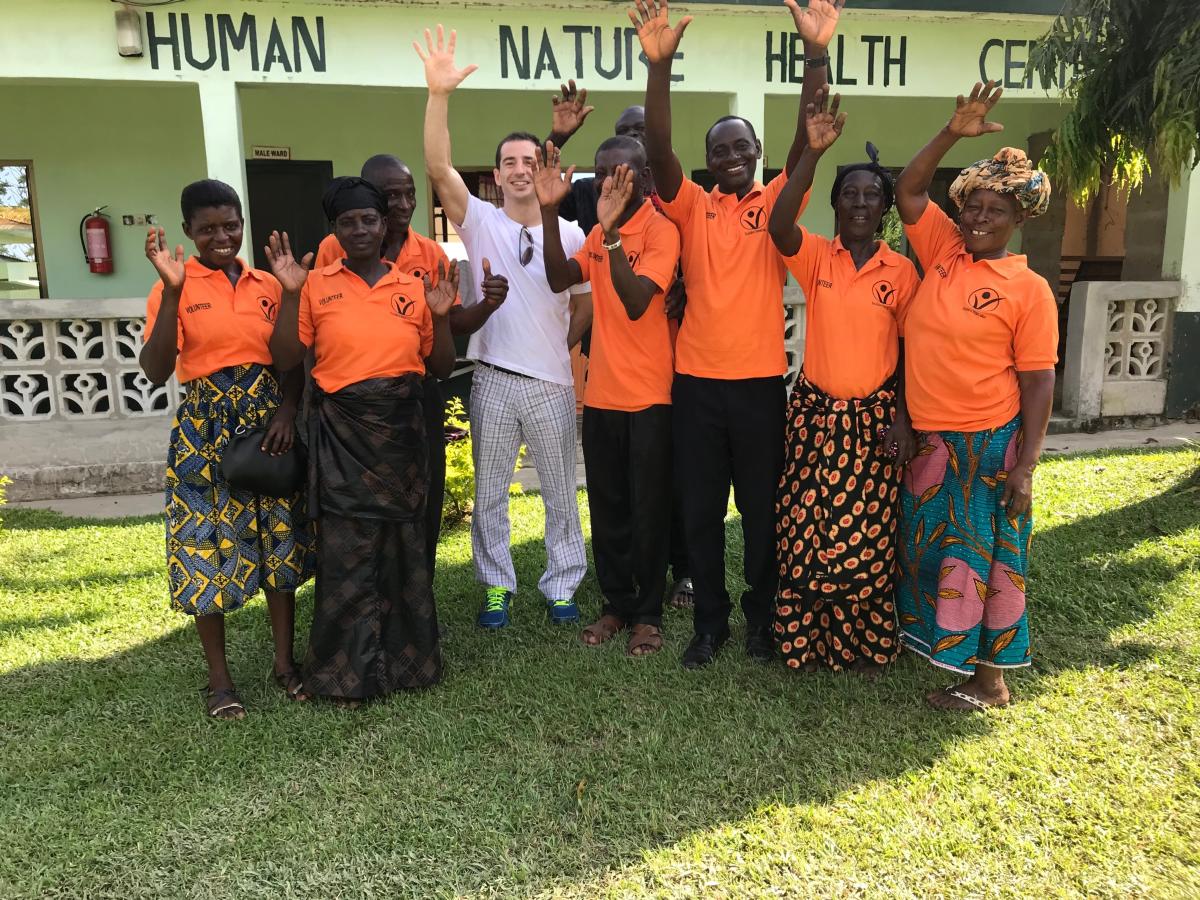Consultant celebrates 20th year of international development charity

As a 23-year-old junior doctor, Ed Gold set off on a mission to bring basic health care to communities in rural Ecuador to address their health inequality.
Today, 20 years on, as an Emergency Medicine and Pre-Hospital Care Consultant, he reflects on the anniversary of his international development charity Foundation Human Nature (fhn), which has successfully brought sustainable community development to poor communities in Ecuador, Ghana and Nepal.
Tell me about the motivations behind starting your charity? How did it all begin?
I had travelled widely as a medical student and observed stark inequalities in healthcare across the world. I realised how spoilt we were in the UK healthcare system where everything is free and then going to countries where it’s only if you have money that you get healthcare.
It was the beginning of Hotmail, and I sent out an ‘electronic’ mail to a leprosy clinic in Kathmandu, but received a reply from a German medical student in Ecuador! I read his lengthy soliloquy about how he wanted to promote community development in developing countries.
Then 48 hours later, as you do when you are 24, I booked a flight to Ecuador.
I went to Quito and met Martin who shared my views in grassroots community development. We chatted for days.
Martin had been visiting as a medical student on a project to plant trees the year before, and each day the locals would walk up to him and say: “Hi doctor, please can you help me?”
Eventually, he said to the community elders that he would raise 20,000 dollars to build a clinic. He came back a year later with the money.
I was the first doctor in the new health centre. The needs of the communities included vaccinations, malaria treatment and delivering babies. They also needed investment in training local people to become nurses and midwives.
We also realised that we needed to get into the communities themselves, so we used volunteers from every community to be the bridge between the health centre and the villages, and coordinate our community projects. We tried as much as possible to use females in our managerial roles to counter the macho village vibes. It was very successful, but it took a lot of work.
What were the key issues faced by communities there?
Seasonal malaria, alcoholism, mental health issues and machete wounds were common.
Vaccination programmes were a huge success because unlike the UK, everyone wants to get their jabs!
In Ecuador, there have been very few cases of malaria in the last ten years. After much community education most people sleep under mosquito nets and seek help early.
So, since then you’ve also made progress in Ghana. How did Ghana differ from Ecuador?
It was 2004, and I was an orthopaedic SHO in North Middlesex. I received a phone call from Martin asking if I wanted to go to Ghana. An elderly female missionary who lived in the same village as Martin in Germany had been funding a clinic for over 20 years in the Ashante region. Initially it was very successful, but then it transpired that ten years previously they had begun to use her money as private income. So we went to Ghana to rescue this health centre.
We resurrected the dilapidated clinic from scratch and turned it into a fully functioning one. We recruited a full team of new staff, took the ambulance and generator back from the local church, and set aside £10,000 to run the project for 2 years.
We now have a fully functioning 24/7 clinic, fully staffed with the same community health volunteer scheme as Ecuador, who have achieved similar goals. Other community projects have been successful - fresh water provision, alternative energy, education and women’s rights to name a few.
The objective of our work is always to ensure that the medical centres are sustainable.
How do you feel when you reflect on your charity reaching the 20-year milestone and having helped so many people?
I was an emergency medicine registrar starting the project in my spare time when I started out. There were many sleepless nights.
It is now funded by most people I know contributing £5-15 a month.
When I returned from my prolonged trips abroad, it was so hard to reintegrate into UK life, where everything is free, and we have so much choice.
Where we stand now is totally worth it! We have three amazing well-functioning projects which do a huge amount of good for thousands of people. What is really amazing is to see girls in the villages stand up and talk about contraception and mental health, they now have belief and authority, whereas before their culture told them to remain silent.
I have also got very sick. I caught malaria and typhoid on different occasions – I had to spend three days in isolation because they thought I had Ebola. It was the worst experience of my life, but also shaped me enormously as a doctor and how to behave with patients.
I’m proud of our investment in the communities and very proud of how we run our charity: we have no overheads and it’s all run by volunteers.
How do the health issues compare to the types of issue you deal with at Newham?
There are differences and similarities. Newham is very multicultural, but also suffers western diseases such as obesity and eating too much sugar.
There are not the issues of violence and aggression that we face here in the UK.
What are your plans for the future?
I now balance family life (my wife and two kids) with my work as an ED consultant and my projects overseas. For all the projects we start, the emphasis is on making them sustainable. We want them to be run by local people and we invest in the education of local people to give them the skills to be able to run them themselves.
Resources
